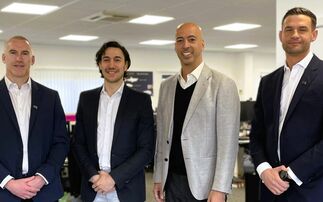Logicalis beefs up European IoT operation after success in Latin America
Logicalis is ramping up its IoT offering in Europe, after three years of success in the space in its Latin America (Latam) business. Its chief digital officer Chris Gabriel says the trend is so imp...
To continue reading this article...
Join CRN
- Enjoy full access to channelweb.co.uk - the UK’s top news source for the IT channel
- Gain the latest insights through market analysis and interviews with channel leaders
- Stay on top of key trends with the Insider weekly newsletter curated by CRN’s editor
- Be the first to hear about our industry leading events and awards programmes
Already a CRN member?











